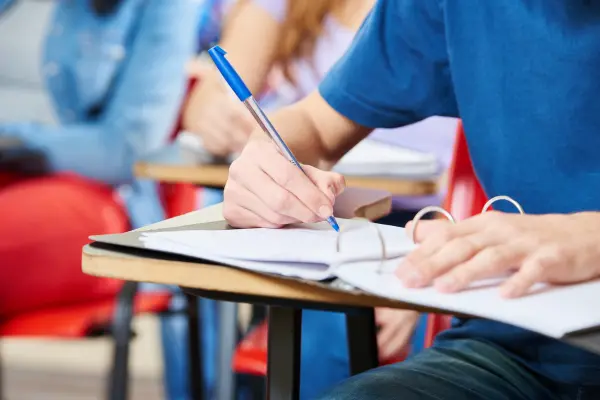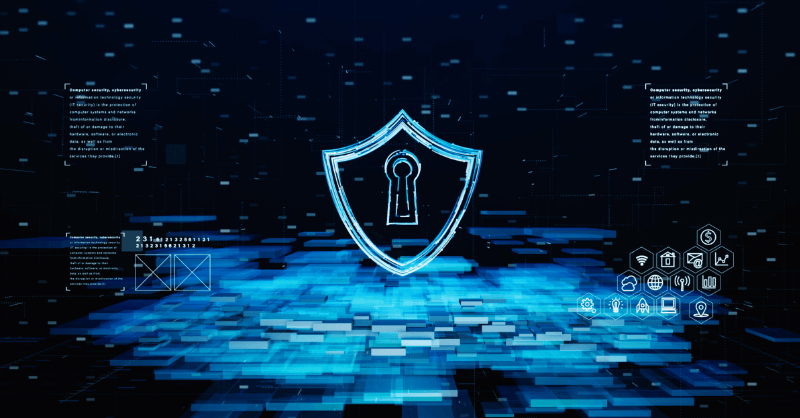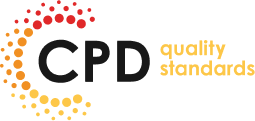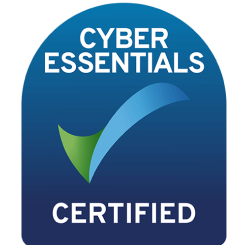Studying is a skill that’s vital for students, professionals, and anyone who wishes to gain knowledge in different areas. When you study, you’ll get insights that’ll come in handy during problem-solving. And especially for students, studying is a skill that helps them hit goals and pass their examination, which allows them to move on to the next education phase. Most students who use efficient study methods can conquer any challenge.
14 Hacks To Improve Your Study Sessions
By studying better, you’ll get a chance to build your skills. In addition, when those students graduate and start looking for jobs, they can use their research and study skills to convince their employers of how instrumental they’ll be to the team.
Your confidence, competence, and self-esteem will also be boosted enough to tackle anything thrown at you. Many students tend to feel overwhelmed by their studies due to the lack of efficient study sessions that kill the morale and lead to failure. As a result, read more to elaborate on the different hacks that’ll improve your study sessions and help you retain more information while gaining knowledge.
1. Have A Study Planner
A study planner offers accountability and organization that keeps you on top of all the studying you have to catch up on. Unlike a timetable, a planner is more comprehensive as it has a guide for preparation, a methodology to planning, and ways to tackle each subject. With a study planner, you can allocate the workload over a long period instead of cramming it at once. It also shows the items needed to be prioritized and how much time to spend on each.
Using a study planner will be instrumental in breaking down your tasks into manageable chunks, making them easier to accomplish for each study session. You can be more productive using this method, as you’ll have to-do lists that you can tick off completed tasks. It’ll also reduce the stress that has to come with last-minute cramming before the test. Cramming brings added pressure that’s unnecessary.
2. Try Active Recall When Studying
Memory plays a great role in studying for a test. As a result, you’ll need to use active recall, which includes memory retrieval and helps you manage different information. Active recall forces your brain to retain information to the point that it gets used to it. This learning technique prepares you for the unexpected, especially for questions with multiple answers.
In addition, it cements the knowledge which will last for a long time and saves you time that you may have used during studying. Active recall will pinpoint your mistakes which helps you embrace them and go through them until you find a solution. You can use other options to enhance your reading ability by searching for a recommended list of nootropics for studying.
3. Read Out Loud
It may sound off, but reading aloud is beneficial in retaining information. By doing so, you could avoid the temptations of distractions as it’s easier to place all your energy into the task at hand.
In this process, you’ll also strengthen your mental and verbal skills by connecting your mind with your voice to achieve cohesiveness and greater focus. You can try reading your notes out loud to boost comprehensiveness. In addition, reading out loud also improves your vocabulary, which improves your study sessions as you become familiar with the different words you may encounter. It also helps make the information sink in and get ingrained, making it easier to remember everything.

4. Take More Notes In Class
Teachers tend to elaborate more on what they are teaching during a class session by using notes as a guide. If you depend solely on the notes, you may lose important information. Not only do you need notes, but great notes will save you time energy and won’t be confusing. If you take handwritten notes, ensure the diagrams and illustrations are precise to avoid disorientation.
Once you take notes, whether digitally or handwritten, ensure you can comprehend them and take time to examine them. Reviewing them will make it easier every time you choose to have a study session.
5. Type Your Notes With Clear Fonts
If you are going to type your notes, you’ll need a font with clarity that’s the best for reading plain texts, including notes. As a result, you’ll need to avoid fonts with distracting styles or those too large or too small, making it hard to comprehend. Having the best readability will keep you engaged and allow you to improve your study time.
6. Listen To Music Or Ambient Sound
The type of music you play when studying may help you or distract you. Some genres, such as classical music that don’t have words, have proven effective in retaining information when studying.
Although it doesn’t make much direct change, music contributes to being in a good mood that improves your information retention. It also contributes to reducing stress and promoting a positive mindset which leads to success when reading. Music has a way of keeping your brain engaged to the point of paying attention to information and applying it to different instances. For example, classical music also helps memorize new information as it enhances the performance of memory and processing skills.
However, music can also have its repercussions if you listen to those with lyrics that tend to be distracting. In addition, go for slow instrumental music to avoid getting surprises in a change of rhythm, which keeps you from focusing on your work.
7. Eliminate Distractions
Distractions are all around you, especially when it comes to social media. Hence, you’ll need to get rid of them to utilize your study time better. As a result, try eliminating distractions that may slow you down. You may do this by figuring your most productive time and setting other tasks aside.
Your phone may be the main distraction due to the constant incoming messages from different apps and websites. As a result, place your phone in silent or do not disturb mode to keep it inaudible at all times. In addition, you can block or hide time-wasting apps that’ll have you staring at your screen instead of studying. Next, break down your work into smaller periods as it’s easier to concentrate for 30 minutes and get a lot done than studying continuously for two hours.
If you choose to work in a loud environment, use noise-cancelling headphones that block the background noise and help you concentrate. Remember to clear your desk, as a messy workspace will distract you.

8. Take Short Breaks
With so much to get through, you’ll need to take regular breaks between studying for ultimate efficiency. And don’t limit yourself to one form of a break as you can choose to exercise, watch a film or take a nap.
Short breaks of five to 15 minutes improve memory, thus increasing your concentration and memorizing ability. In addition, these breaks will improve your energy as people tend to feel drained when they focus on one task over a long period. Studying can be stressful for most students, and taking breaks reduces your stress levels. Thus, you become more efficient.
9. Changing Your Study Scenery
Having to study in the same place repeatedly can get boring quickly and lead to a lack of productivity. As a result, you may need to change your work area to break the monotony and improve the brain’s capabilities.
First, find a different space that you aren’t used to. For instance, you can move from your study room to the dining area for extra focus. Although before moving, you’ll have to consider factors such as the lighting, which plays a vital role in ensuring you don’t strain a lot.
10. Avoid Multitasking
Multitasking can be a great way of getting two things completed at once, thus cutting downtime. However, it may be best to stay away from multitasking when studying, especially for two or more subjects.
When working on two major subjects, you may end up losing the time you had due to the lack of concentration. However, prioritise the hardest subject and work your way onto the lighter one.
When you choose to multitask on lighter subjects, you can keep anything you need for the tasks handy. Try studying related subjects to cut down on time spent on each individually.
11. Incorporate Visual Aids
People have different ways to understand what they are learning, and incorporating visuals in your study sessions may improve them greatly. Using images will help you retain information stored in long-term memory, making it easier to remember various information.
Visuals are processed easier than text, with information transmission to the brain standing at 90%. Visuals will also stimulate your imagination and affect your cognitive capabilities, thus helping you grasp the concept faster. Therefore, find some visual aids that relate to the subject you are studying, such as videos or images, and use them to your advantage.
12. Participate In Group Discussions
Group discussions are sessions where students exchange information and healthy criticism. By attending group discussions, you’ll increase your grasp and mastery of a subject.
If you have difficulties comprehending a subject, the input of your peers with better insights may make it easier. You’ll get a chance to generate more ideas on the topic, which cuts down on the study time as you prepare for the subject. You get to familiarise where you went wrong and the mistakes or weaknesses you have to overcome. Since you have to talk and join in a group discussion, you’ll be able to enhance your speaking skills, especially for an oral test.
Your listening skills will also improve, making taking notes in class effortless and analysing videos better. You’ll also be productive as you’ll have to get your ideas straight during the discussion.
13. Make Flash Cards
Flashcards allow you to recall information and concepts, making them conducive during the study sessions. When making flashcards, you can write the question on the front and answers on the back for reference purposes. These flashcards can be used repeatedly to retain information in the long run. Ensure you shuffle your cards into a different each time. Sort your cards into two categories: those you know and those you don’t, then work on your weak places.
14. Take Mock Exams
Examinations are a way of testing your readiness for the materials you’ve been studying. By taking a mock test, you’ll be getting a reality check of how well you prepared and what you missed.
Mock exams would help you develop effective strategies and plans if you failed the first time. You can experiment with different ways of answering questions and settling down on a strategy. Solving a mock test daily will help you gain awareness of your pace. Solving various mock exams might let you realize your need for more time for certain areas and less for another.
The moment you evaluate how you fare; you can decide how long to contemplate for every portion so you can finish the test and have extra time to double-check your answers. Once you work on and solve several mocks, you’ll realise your shortcomings which reduces the nervousness of the actual exam.
Bottom Line
In conclusion, you don’t have to study without a plan and fail to be productive at the end of the day. The following tips discussed above should help you form better study sessions. You can find different hacks that you can incorporate in your session and make it work better for you. It’s best to try and then create new strategies for better results, depending on your desired results.
You can place a reward for yourself at the end of the session to act as motivation to attain your goal. Ensure you also have enough sleep that’ll keep you refreshed and ready to work on studying. In addition, take lots of water and fruits that’ll keep you healthy and hydrated enough to prevent a headache when studying. This could even pave way for better studying habits in the long run.


![]() 12 minutes
12 minutes




































